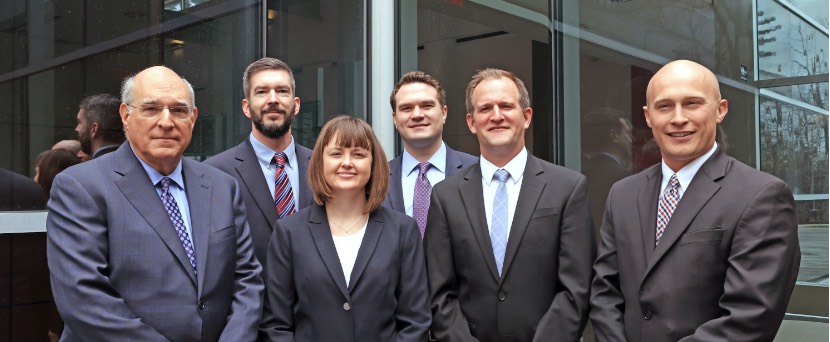October 25, 2020
Illinois Workers Comp and Covid-19
ILLINOIS WORK COMP UPDATE CONCERNING CORONAVIRUS (COVID-19) Effective April 13, 202 …
Countryside, Illinois is a small residential city in Chicago’s western suburbs. According to The Weather Channel’s averages, January is Chicago’s coldest month with just over two inches of monthly precipitation. Accordingly, regular January ice and snow would be expected in Countryside.
In January 2007, Jennifer Hornacek fell on ice in the parking lot of the building where her employer, Prudential American Homes, a real estate firm, leased office space. She was taken to the hospital.
In the Circuit Court of Cook County, Hornacek sued the building owners and their snow-removal contractor for negligence. The trial court granted summary judgment for the defendants, meaning that the court found “no genuine issue of material fact” and that under those undisputed facts the plaintiff could not recover in the lawsuit.
Hornacek appealed to the Illinois Appellate Court. On September 30, 2011, in Hornacek v. 5th Avenue Property Management, the appeals court reversed the trial court, finding that because the plaintiff presented evidence that could reasonably be construed by a judge or jury to show that the defendants negligently caused Hornacek’s fall and injuries, summary judgment was not proper.
Broadly, the concept of “premises liability” asks the question: When are owners or possessors of land responsible for injuries sustained by persons lawfully on their premises? The Hornacek case clearly enunciates the state premises liability law that applies to an Illinois slip-and-fall case in winter conditions.
Illinois law makes an interesting distinction. For injuries from “natural accumulations of snow or ice” left undisturbed, a property owner is not responsible. However, if an owner (or someone he or she hires) alters a natural accumulation and someone is subsequently injured because of that “unnatural” accumulation, that poses a hazard, the owner may be liable if he or she failed to use “ordinary care” in the removal of the snow or ice.
The owner (and his or her hired contractor) also has a duty to provide a safe way to enter and exit the property.
The appeals court states that to recover in Illinois for injuries in a slip-and-fall case where there was ice, snow or water, the precipitation accumulation must be unnatural, and the owner must know about it or have constructive notice (or have caused it). To show constructive notice, the court looks at how long the condition has existed and if it was reasonable for the owner to have known of it.
The court found that Hornacek had presented enough evidence at trial to beat a motion for summary judgment because deposition testimony claimed that the snow removal service regularly pushed large piles of snow against a building wall that melted in the sun, sending water streams into the parking lot that refroze at night. This could provide a reasonable basis for a fact finder to conclude that an unnatural accumulation caused the accident.
The court also observed that the owner could be found to have had constructive notice given the regular history of this snow removal practice in the parking lot.
If you are injured because of slipping and falling at a store, hotel, gas station or other facility, be sure to consult an experienced personal injury lawyer as soon as possible to explain your legal options and help you preserve your rights. Such an injury could occur at any time and place where unnatural accumulations result and create hazards.
Hassakis & Hassakis, P.C. handles many types of litigation including medical malpractice, nursing home negligence, auto/truck collisions and premises liability cases. For more information or to ask any questions you have about filing an premises liability lawsuit, please contact our injury lawyers or call (800)-553-3125 or email us at mhass@hassakislaw.com.
